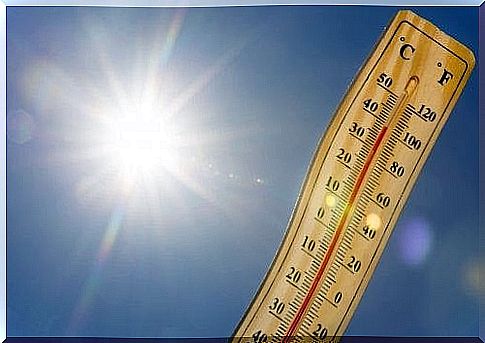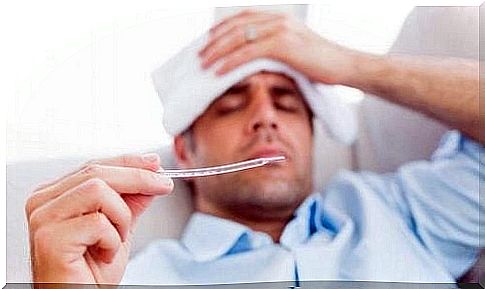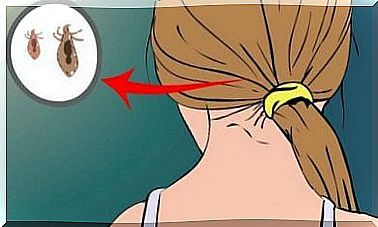Hyperthermia: How To Treat It

The treatment of hyperthermia depends on the type of hyperthermia and what it is that has caused it. We take a closer look at that in this article.
Before we dive into the details, it is important to know that there are different treatments for hyperthermia. Of course, it is also important to know what hyperthermia is and what the causes are so that one has a better understanding of how to treat it.
What is hyperthermia?
Hyperthermia is the name of the set of diseases that come from unhealthy heat exposure. Essentially, it is a regulatory disorder in body temperature. Typically, it involves an increase in the body’s central temperature that is higher than 37 degrees.
First of all, it is important to know that a person who has hyperthermia is not the same as a person who has a fever. There are different concepts. Fever is the body’s response to a disease. It is an immune response that consists of raising the body temperature to higher than the normal temperature in response to an external agent.
The causes of hyperthermia

To begin with, it is important to know that a person may have primary hyperthermia due to exposure to excessive temperatures. However, it can also be secondary hyperthermia if it is caused by a previous pathology.
Overall, there are several different causes that can trigger a hyperthermia episode.
First, the body itself can produce too much heat due to deregulated temperature mechanisms.
It could also be because the ambient temperature is too high over an extended period of time. In this case, even if the body’s thermoregulatory mechanisms such as sweat work properly, it may not be possible to release heat into the environment.
Another cause may be a side effect of a treatment with certain types of medication. Among them are:
- Medicines that affect the body’s thermogenesis processes such as corticosteroids or sympathomimetics.
- Medicines that damage or alter the tissue activity that support thermogenesis. An example of this is anesthetics.
Hyperthermia can also occur due to certain metabolic or nutritional problems, or due to damage to the central nervous system.
Symptoms of hyperthermia
If hyperthermia has occurred due to too much physical effort in too high temperatures, and one has sweated excessively, one may experience muscle contractions, headaches, dizziness, nausea and fatigue.
If the patient with hyperthermia has not exercised, he or she may still experience nausea and vomiting. There may also be frequent headaches, muscle aches and mood swings.
There may also be a number of other bodily signs. Cardiac arrhythmias and drops in blood pressure are common symptoms in these cases.
Likewise, there are changes in the skin. When the skin is weakened due to the heat, it usually becomes pale, cold and sweaty. However, when a patient has heat stroke, the skin will become red and hot. Despite these differences, dryness is usually a constant symptom.
Treatment

As we mentioned at the beginning of this article, the type of treatment depends on the cause of the hyperthermia.
If the hyperthermia comes from a heat stroke, then the treatment will be divided into two stages. First, the body temperature must drop. Then the complications must be treated.
As for the first step, it is best to apply covers continuously. You can do this by dipping them in cold water, wetting the skin with cold water or making sure you are in a place with plenty of cold air currents.
In case of hyperthermia due to medication, the treatment also consists of several steps.
The patient must first go to the doctor. The doctor will recommend that you stop taking the medicine that is to blame for the pathological condition.
The physician should also perform hemodynamic and analytical monitoring and help heal the hydroelectrolytic changes. Sometimes it may be necessary to resort to oxygen therapy.
In other cases, the doctor may prescribe a muscle relaxant medication.
If the case of hyperthermia stems from too much physical exercise, it is necessary to stop exercising immediately. Rest in a cooler place and drink plenty of fluids.









